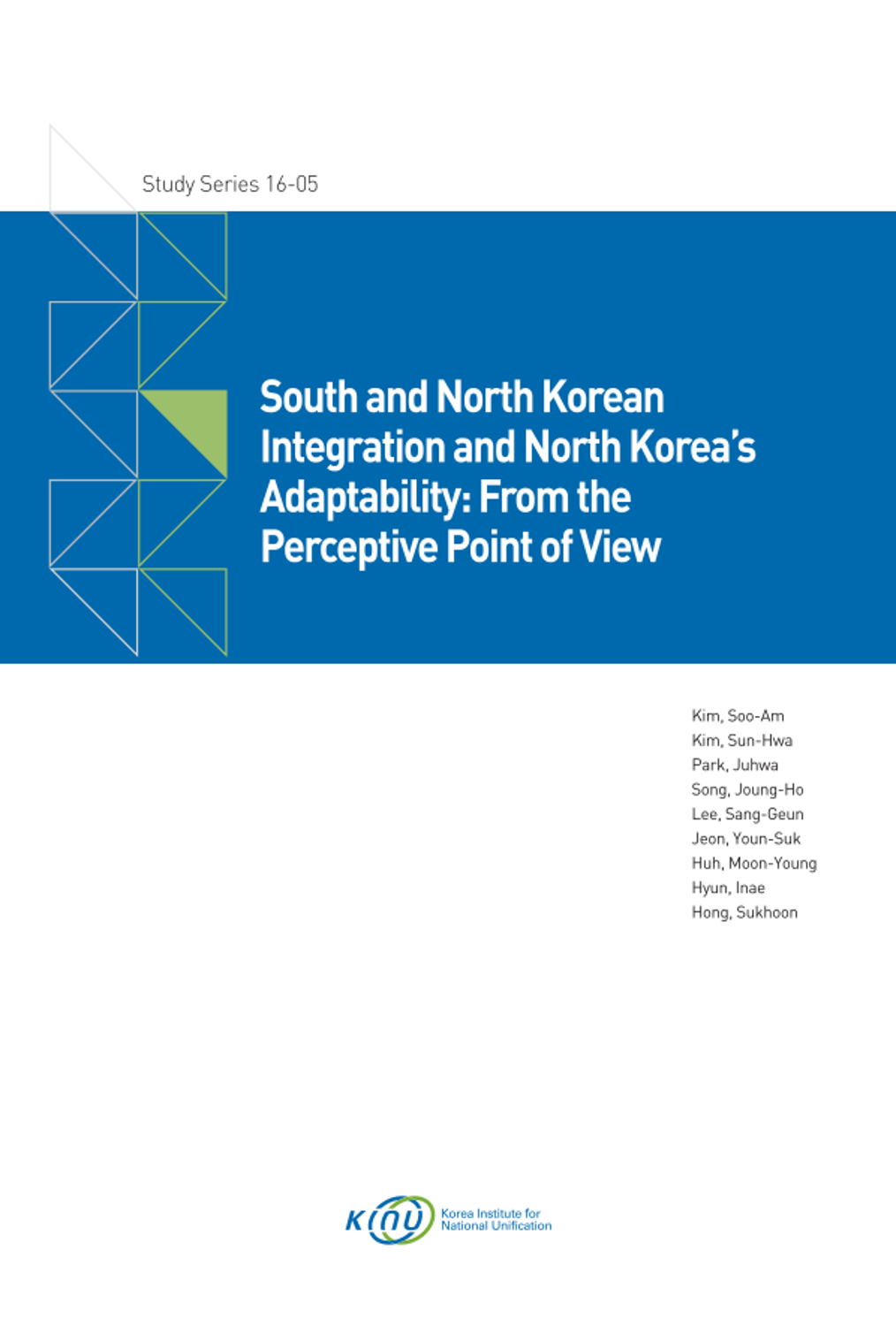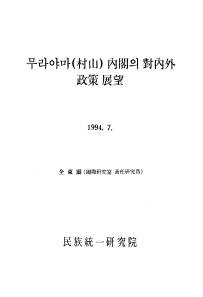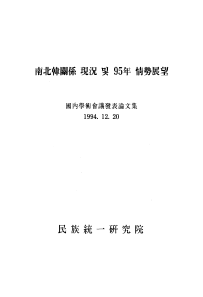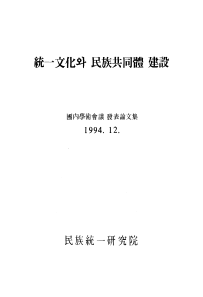
연구원발간물Study Series 2016-05
South and North Korean Integration and North Korea’s Adaptability: From the Perceptive Point of View
- 개인저자
- Kim, Soo-Am, Kim, Sun-Hwa, Park, Juhwa, Song, Joung-Ho, Lee, Sang-Geun, Jeon, Youn-Suk, Huh, Moon-Young, Hyun, Inae, Hong, Sukhoon
- 발행사항
- Seoul : Korea Institute for National Unification, 2016
- 형태사항
- 37p. ; 23cm
- 총서사항
- Study Series
- ISBN
- 9788984798441
- 청구기호
- 000 SS16-05
소장정보
| 위치 | 등록번호 | 청구기호 / 출력 | 상태 | 반납예정일 |
|---|---|---|---|---|
이용 가능 (2) | ||||
| 1자료실 | G0016114 | 대출가능 | - | |
| 1자료실 | G0016115 | 대출가능 | - | |
이용 가능 (2)
- 등록번호
- G0016114
- 상태/반납예정일
- 대출가능
- -
- 위치/청구기호(출력)
- 1자료실
- 등록번호
- G0016115
- 상태/반납예정일
- 대출가능
- -
- 위치/청구기호(출력)
- 1자료실
책 소개
Previous studies on inter-Korean integration have proposed the basic frameworks for the integration of system in each sector in the context of institutional integration. In particular, the researchers have mainly dealt with the details of integration for each sector - which forms of system will be applied to the integration in the institutional integration process. However, the studies on a specific strategy for integration and an action plan on how to actualize the framework have still been relatively scarce. To effectively pursue the inter-Korean integration at the time of unification, a detailed integration strategy and an implementation plan are required with the consideration of South Korea’s domestic capabilities, the level of institutionalization of South and North Korea, North Korea’s capabilities, and international capabilities.
In order to establish the effective strategy to promote integration and an action plan, one must bear in mind the North Korean factor - one axis of integration. However, the existing studies in inter-Korean relations have mostly adopted the approach of objectifying North Korea in an inter-Korean integration research. To design an effective strategy to pursue the inter-Korean integration and action plan, it is necessary to thoroughly scrutinize North Korea’s capabilities, while setting North Korea as the subject of integration. Above all, previous studies rarely consider how the North Korean people will respond to such system when pursuing the inter-Korean integration. Accordingly, engineering an efficient strategy for the inter-Korean integration requires an approach reflecting the perspective of North Korea’s adaptability how the North Korean people, as a partner of integration, would think of the institutional integration such as liberal democracy, the market economy, and the rule of law and how they will respond to them. On that note, this study examines the inter-Korean relations with the North Korean factor at the center.
The study dealt with the perception on North Korean defectors to analyze North Korea’s adaptability toward inter-Korean integration from the viewpoint of perception. While it would be ideal to conduct a survey on North Koreans directly, that was not a feasible option given the current inter-Korean relations. Therefore, the study takes an indirect method by conducting the survey of North Korean defectors’ perception based on structured questionnaires. In other words, the research indirectly examines North Korean’s acceptability at the individual level by analyzing North Korean defectors’ understanding of systems for each sector and the level of adaptability for each period in their settlement process in the South Korean society...
목차
1. Introduction
A. Purpose of Study
B. The Concept of North Korea’s Adaptability
2. North Korean Defectors’ Perception on Inter-Korean Institutional Integration
A. Survey Outline
B. Perception on Unification
C. Perception on Life Satisfaction and Identity
D. Perception on Integration of Political System
E. Perception on Integration of Economic System
F. Cross-Analysis of Major Indicators
3. Direction of Inter-Korean Institutional Integration from Perceptive Point of View




